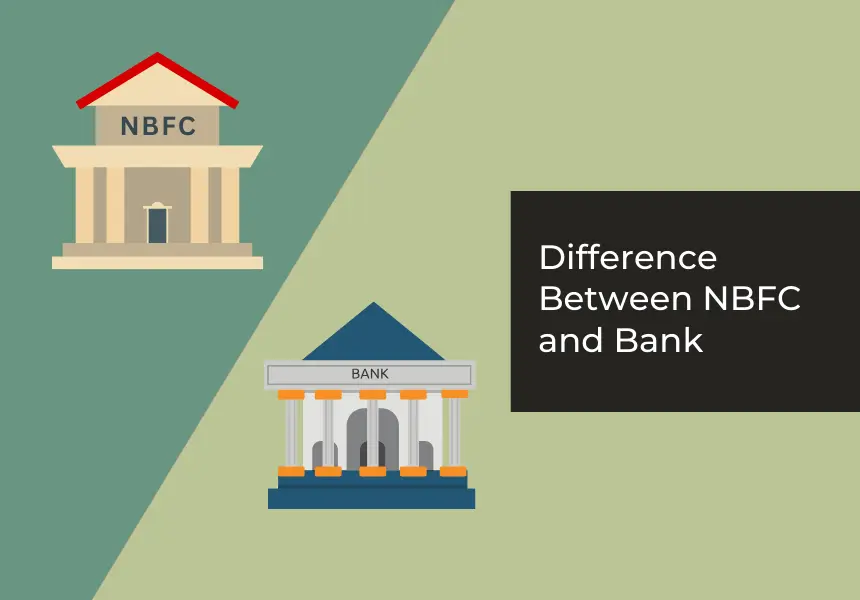When it comes to financial services in India, both Non-Banking Financial Companies (NBFCs) and banks play a crucial role in economic growth, lending, and financial inclusion. However, despite offering similar services like loans, investments, and asset financing, NBFCs and banks operate under different regulations and have distinct business models.
Understanding the key differences between an NBFC and a bank is important—especially if you’re planning to start a financial services business and considering NBFC registration in India.
What is an NBFC?
A Non-Banking Financial Company (NBFC) is a company registered under the Companies Act, 2013 that provides financial services similar to banks but does not hold a banking license. NBFCs are regulated by the Reserve Bank of India (RBI) but are not allowed to accept demand deposits like savings or current accounts.
NBFCs typically engage in:
- Loan and credit facilities
- Investment in securities
- Hire-purchase and leasing
- Asset finance and microfinance
To operate legally, an NBFC must obtain an NBFC license from RBI in India.
What is a Bank?
A bank is a financial institution that is licensed to accept deposits, provide loans, issue debit and credit cards, and offer various banking services under the Banking Regulation Act, 1949. Banks are heavily regulated by the RBI and must comply with stringent norms related to capital adequacy, cash reserves, and risk management.
Key Differences Between NBFC and Bank
| Feature | NBFC | Bank |
|---|---|---|
| Regulation | Regulated by RBI under Chapter III B of the RBI Act | Regulated under the Banking Regulation Act, 1949 |
| License Requirement | Requires NBFC License in India | Requires full banking license from RBI |
| Deposit Acceptance | Cannot accept demand deposits | Can accept all types of public deposits |
| Payment Systems | Not part of payment and settlement systems | Integral part of payment system (NEFT, RTGS, IMPS) |
| Reserve Requirements | No CRR or SLR requirement | Must maintain CRR and SLR |
| Account Types | Cannot open savings/current accounts | Can open savings/current accounts |
| Involvement in Forex/Trade Finance | Limited or not permitted | Allowed |
| Cheques Issuance | Cannot issue cheques | Can issue cheques drawn on itself |
Why Choose NBFC Over a Bank?
Setting up a bank requires substantial capital, stringent compliance, and long regulatory approvals. On the other hand, NBFC registration in India is relatively faster and more accessible for entrepreneurs looking to enter the financial services sector.
Benefits of starting an NBFC:
- Flexibility in operations
- Focus on niche segments (like gold loans, SME lending, vehicle finance)
- Less compliance burden compared to banks
- Growing demand for non-bank financing in India
How to Get an NBFC License in India
To legally operate as an NBFC, you must first complete the NBFC registration online in India through the RBI portal. The process includes:
- Forming a Company under the Companies Act
- Applying for NBFC License from RBI in India
- Meeting Minimum Net Owned Funds (NOF) Requirement (currently ₹2 Crores for most NBFCs)
- Submitting relevant documentation and business plans
- Undergoing RBI due diligence and verification
Online NBFC Registration in India: The Smart Way
Thanks to digitization, you can now complete online NBFC registration in India with minimal hassle. Most steps—from document submission to compliance tracking—can be managed through RBI’s online portal or with the help of a NBFC registration consultant.
If you’re new to the process, working with an NBFC registration consultant in India can help you:
- Save time and avoid common legal errors
- Prepare accurate documentation and financial projections
- Communicate with RBI effectively
- Understand the total cost and timeline of NBFC license online
Conclusion
While banks and NBFCs may offer similar financial services, they differ greatly in structure, regulation, and capabilities. For entrepreneurs and investors, NBFCs offer a more flexible, cost-effective route to entering India’s booming financial market.
Whether you’re applying for an NBFC license in India or exploring NBFC registration online, it’s essential to understand the regulatory environment and work with experienced NBFC registration consultants to ensure full compliance with RBI guidelines.

